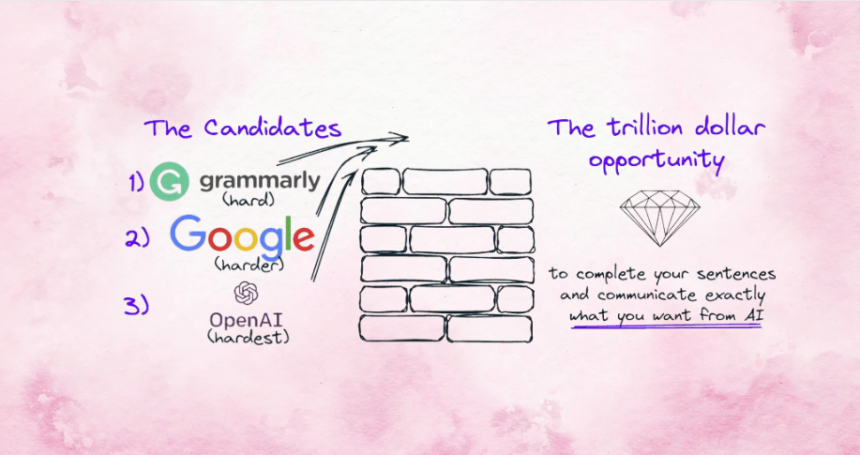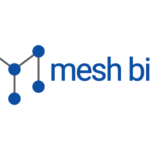This is a guest post by Chris Winterhoff, who is an expert in Growth. Currently Chris is a fractional Growth leader and growth advisor at Perceptycs.
Previously he headed Growth at Onto, a UK platform for all-inclusive electric car subscriptions. And was also Head of Marketing at Mashroom, which covers the UK housing industry.
Guest Author: Chris Winterhoff
Grammarly could be worth more than Google with a trillion dollar opportunity that Grammarly is perfectly suited for.
The problem to solve… make communicating with AI faster.
If you’ve ever used ChatGPT, you’ll probably have had a feeling of delight and frustration at the same time. Frustration because although the answer often is not exactly what you want.

It might be anywhere from 40-60% what you want, but it needs a fair bit of refining.
Enter Grammarly to solve this pain point.
For power users of Grammarly, it has access to mounds and mounds of your data. It knows almost everything that you’re working on and should, in theory, be able to infer what it is that you need.
Imagine if you could tell Grammarly to create a research report just like the one you did last week and to pull additional information from AI (ChatGPT or otherwise).
Imagine if you could ask Grammarly for inspiration for the next creative campaign, for a proposal just like the one you pitched two weeks ago.

Imagine if Grammarly could you read your AI prompt, and because it knows your writing so well, it could suggest autocompletions that has the detail and granularity to get the answer from ChatGPT first time round.
And why is it worth a trillion dollars?
If Grammarly can use the reams of data it knows about you to make you 10-30% more efficient, how much do you think companies would be willing to pay for that?
Google certainly has a chance to get there. But it’s too busy working on a ChatGPT competitor than to work on an interface between its users and ALL AI tools (whether ChatGPT, Claude et al).
Open AI will likely try to make their interface better. But it doesn’t have any of the data that Google has on you (in Google docs and Sheets) or Grammarly (from having read that data).
I think it’s Grammarly’s for the taking. But only if they can execute fast enough.










